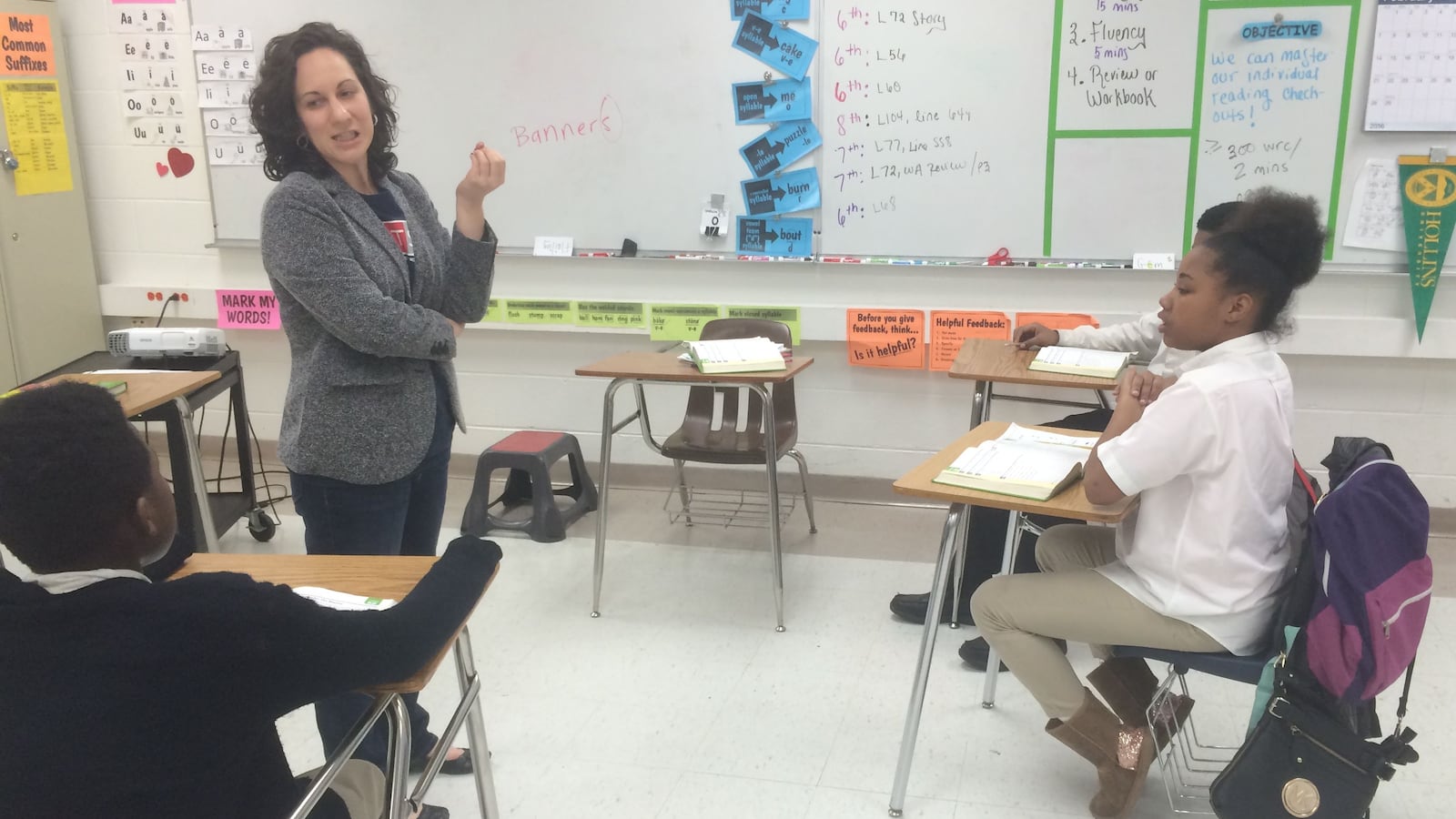Tennessee teachers that come to the classroom through alternative preparation programs are bucking a nationwide trend by sticking around.
A new study from Vanderbilt University’s Peabody College of Education says that teachers trained in such programs nationwide are more likely to leave the profession — a problem, since other research shows that the longer teachers stay in the classroom, the more effective they become.
In Tennessee, however, all of the state’s alternative programs had four-year retention rates of more than 50 percent, according to the state’s latest report card on teacher preparation programs. Teach For America in Memphis had the state’s highest retention rate, 74 percent.
The Vanderbilt report comes at a time when Tennessee is closely examining the role of teacher training programs in turnover. In a redesign of a State Board of Education report card evaluating preparation programs, which will be released next month, retention rates will be more prominently displayed, said Sara Heyburn, the board’s executive director.
The number of Tennessee teachers trained in programs outside of traditional universities is steadily growing. But such programs still account for a small percentage of new teachers statewide. In 2015, only 379 of 4,225 teachers who completed programs in Tennessee went the alternative route.
Still, Heyburn said alternative programs are an important part of the state’s teacher prep pipeline. This year, the state even stopped labeling them “alternative” programs, although the new report card will detail how much student teaching programs provide before a teacher takes charge of his or her own classroom. Student teaching time is considered a key difference between alternative and traditional programs, although Tennessee universities are increasingly creating fast tracks to teacher licensure, such as Belmont University’s Metro Nashville Urban Teaching Residency or Tennessee Technological University’s Project Inspire.
“The bottom line is to have teacher prep programs that are recruiting and placing really strong teachers across the state,” Heyburn said.
Christopher Redding, who co-authored the study, said supporting teachers once they’re in the classroom full time, through practices such as mentoring or continuing education, is key to getting them to stick with teaching and to get better at their jobs.
While many alternative programs lack such support, Heyburn said Tennessee is trying to promote ongoing supports for newbie teachers. “That first year is really hard, no matter what kind of a program you went to,” she said. “Making sure all teachers have strong mentors and adequate resources is a priority.”
Athena Turner, executive director of Teach For America Memphis, was part of the group’s first-ever corps in Memphis 10 years ago. She says the organization keeps its members in education through coaching and group learning, especially in the second year.
"People want to feel supported ... like there’s somebody valuing their development."
Athena Turner, Teach For America
“People want to feel supported … like there’s somebody valuing their development, like they have a deep relationship with the people they work with,” Turner said. “When those things are there, people stay.”
Randall Lahann, who directs Nashville Teacher Residency, one of the state’s newest alternative programs, said the Vanderbilt report doesn’t surprise him. Lahann said his program, whose first class of 14 residents started student teaching this year, is designed to keep graduates in the classroom, especially Nashville classrooms, for a long time. Building professional support is key.
“Professional communities take time to build,” he said. “If teachers stick around, those communities gel.”

